Meat Trade Journal
A former government advisor and leading food expert has called for a boycott on supermarket chicken following yesterday’s campylobacter results.
Writing on The Guardian website, Professor Tim Lang called for the British public to boycott supermarket chicken products: “Dear British public, be outraged, act, withhold your money until you can have confidence in what you consume. This may not be orthodox public health strategy but it is definitely what history shows works when standards are as dire as these results show them to be,” he stated.
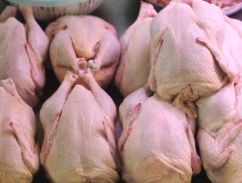
Lang was a former expert advisor to the health and environment department until 2011 and was instrumental in the set up of the Food Standards Agency (FSA). His comments follow yesterday’s revelation by the FSA that 70% of supermarket chickens tested positive for the bug.
Lang said the FSA results were as bad as the salmonella scandal and BSE in cattle: “What these results show is that they have slipped backwards again: the rate of campylobacter is even higher than the rate of salmonella in poultry was in the 1980s; this is dreadful. Salmonella has come down and our problem now is campylobacter; but one form of bad news fading only to be replaced by new bad news is hardly progress,” Lang stated.
However, the British Poultry Council refutted Lang’s comments in a statement: “There is absolutely no reason for anyone to stop buying British poultry. All poultry is safe to eat. Millions of consumers enjoy poultry every day as they recognize it is a safe, affordable and environmentally sustainable quality meat.
“Consumers are able to make an informed choice, and they have consistently made poultry their favourite meat – in the UK almost as much poultry is consumed as beef, pork and lamb combined.
“The industry is working hard to tackle the bacterium before it reaches consumers, but consumers also have an important role to play as proper cooking kills campylobacter.”
Asda came out worse of all the retailers with 78% of its raw chicken products testing positive for campylobacter. Asda said it was disappointed at the results and stressed it was “working hard” to find a solution.
Protected Geographical Indication (PGI) West Country Beef has been chosen by Tesco for use in its ‘Finest’ range.
The PGI beef, sourced from Two Sisters Foods in Bodmin, Cornwall, will fill Finest Steak Pies, made by Tamar Foods in Callington, also in Cornwall, for stores nationwide.
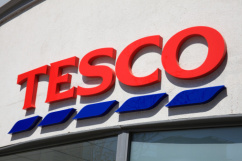
/>The West Country PGI status, which covers both lamb and beef, was obtained thanks to work done by strategic advisory body Meat South West (MSW) and other organisations.
Peter Baber, chairman of MSW, said: “We worked incredibly hard to help secure the PGI for both West Country Beef and West Country Lamb. Tesco’s decision to use West Country Beef in its Finest steak and steak and ale pies is a direct result of those efforts.
“It is incredibly promising news for West Country produce. We are delighted with the outcome and the benefits that will bring to the region’s farmers and processors, who can take advantage of the premium status given to the region’s beef and lamb now eligible to carry the PGI.”
To qualify for the protected status, the lamb and beef must be at least 70% forage-fed, and come from stock born, raised and finished in Cornwall, Devon, Somerset, Gloucestershire, Dorset or Wiltshire.
Gary Bound, purchasing manager for Tamar Foods, said: “We are delighted to be able to use PGI West Country Beef in this top-tier product for our retail customer. The recent awarding of PGI status has given us the opportunity to use high-quality, regional beef, which reduces food miles, secures employment locally and adds value to the regional economy.”
Kelly Turkeys, which has celebrated 30 years of business, has announced a new Christmas promotional campaign.
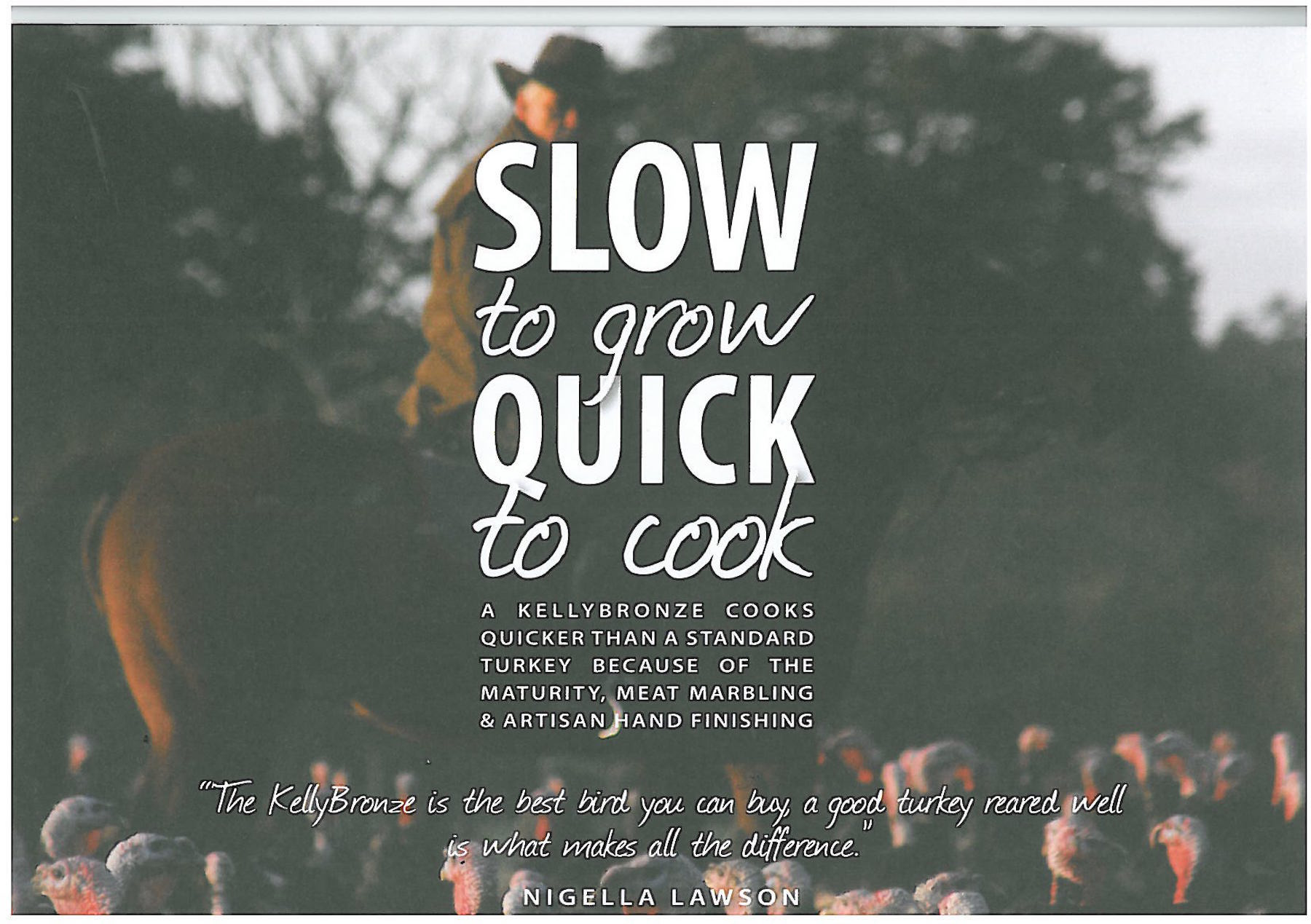
The ‘Slow to Grow, Quick to Cook’ branding intends to highlight how Kelly Turkeys are free-range, which Paul Kelly, turkey farmer and owner said was unique to the turkey sector.
The promotional activity will be centered around point-of-sale material, including four-page flyers, posters and brochures. Kelly Turkeys also reported new value-added lines, including joints and easy carve, are designed to tap further into the value-added route.
“The move to more completely wild woodland turkeys makes us really stand out from others, and taking poults from the first hatches of the season means we have the most mature turkeys possible.
“As far as we are aware, we are the only turkey company in the world to have control of pure line genetics through breeding, hatching, growing and processing in a fully licensed plant,” Kelly added.
Welsh Beef and Lamb will receive a €4.1 million boost to promote Welsh PGI meat across Europe, it was announced this morning (13 November 2014)
Deputy Minister for Farming and Food, Rebecca Evans, made the announcement during Hybu Cig Cymru’s (HCC) annual conference in Llanelli this morning. The European Commission has approved the funding, which will see HCC spend €4.1m – or just over £3.2m – on the promotion of Welsh Beef and Lamb in Germany and Italy and Welsh Lamb alone in Denmark and Sweden.
HCC’s market development manager Laura Pickup said these markets were chosen because distribution networks for Welsh red meat already exist there.
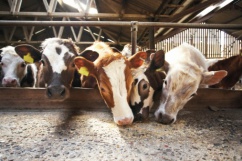
Similarly to Eblex’s latest European funding announcement, the European Commission will contribute half of the €4.1m with HCC making up the other
“This is excellent news for the Welsh red meat sector,” said HCC chief executive Gwyn Howells. “This €4.1m funding will provide a significant boost for our efforts to raise awareness of the high standards that Welsh Lamb and Welsh Beef have to achieve in order to qualify for PGI status.
“It is particularly gratifying to know that our stewardship of the previous scheme has been judged to be a success by the European Commission – so much so that they have awarded us another €4m to continue our work.
“Raising awareness of the qualities that have earned Welsh Lamb and Welsh Beef PGI status will have a beneficial effect on farmers and processors here in Wales. I hope it will lead to increased overseas orders as awareness of the PGI stamp grows, boosting sales and helping the Welsh economy,” Howells concluded.
HCC said the promotional activity will include print and digital advertising, posters and recipe booklets for retailers, as well as attendance at trade and consumer food shows.
Sainsbury’s has announced a £150m investment in price cuts as it revealed a 2.1% fall in like-for-like sales.
Sainsbury’s released its interim results for the 28 weeks ending 27 September 2014, showing underlying profit before tax down 6.3% to £375m from £400m in 2013/2014. Underlying basic earnings per share were also down significantly, by -12.7% to 14.5p compared with 16.6p in 2013/2014.
The supermarket, alongside Tesco, Asda and Morrisons, has been hard-hit by the success of discount brands Aldi and Lidl.
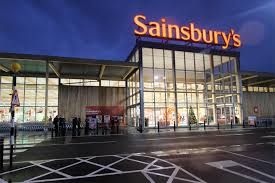
To combat this, Sainsbury’s said it would invest £150m in reducing prices, half of which will fall in the second half of 2014/15 and the remainder in the first half of 2015/16.
Moreover, Sainsbury’s stated it would work closely with its suppliers to provide lower prices for it customers and “deliver value chain efficiencies which can be reinvested in price”.
Chief executive Mike Coupe said Sainsbury’s would continue to put customers first: “We will continue to differentiate ourselves from a position of strength by offering great products and services at fair prices, investing in the quality of our food and investing in price in areas where our customers tell us it matters most. By knowing our customers better than anyone else, we will continue to serve them through multiple channels and in ways that make their lives easier, regardless of changes in the market. Our colleagues will remain our greatest asset; we will invest in their training and development to ensure they can continue to deliver industry-leading service.”
David Tyler, chairman, said: “The UK grocery sector has become increasingly challenging in recent months. As a result, we have evolved our strategy and believe this will allow us to build on our heritage and past success, especially as it will be delivered by the most experienced management team in the industry.”
Iceland has launched an exotic meat box to tie in with its sponsorship of ITV’s reality series ‘I’m a Celebrity… Get Me Out of Here!’.

The £10 box contains two kangaroo burgers, two ostrich burgers, two crocodile burgers and two ostrich fillets, available in stores now. The frozen foods retailer is marketing the meat as a low-fat, high protein alternative to beef and lamb.
Nigel Broadhurst, joint managing director said: “To celebrate the show’s return, we have launched our exclusive, new Exotic Meat Feast, which is ideal for those looking to introduce quick, versatile and tasty meals into their diet. It’s great for families looking to spice up their menu and they’re a great alternative to usual beef burgers as these exotic meats are typically lower in fat and higher in protein – a great choice if you are looking for a reduced fat meat option.
“We think our shoppers will really enjoy the varied flavours that our new Exotic Meat Feast offers. The easy to prepare, succulent and tender meats are sure to go down well with diners before, during or after the show – or at any other meal occasion.”
Lower material costs and currency exchange rates are impacting Hilton Food Group despite reporting a strong financial performance.
The company reported overall growth in Western Europe but continues to be “adversely affected” by lower material costs and currency exchange translation, causing turnover in Denmark to fall in comparison to last year. The UK operation has seen “encouraging” volume growth relative to last year and reported site development at the UK site will be completed, which will see capacity grow next year.
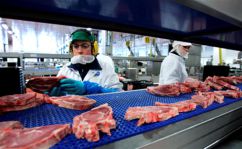
Hilton’s joint venture with Australian retailer Woolworths, which contributed to high revenues in 2013, is making “good progress”. The Victoria processing site is due to open in the first quarter of next year.
Business in Ireland has picked up following a “challenging” first half of the year. Meanwhile Hilton reported trading to be in line with expectations in Central Europe with continued growth in Poland.
“The Group’s financial position remains strong with net debt growing in line with expectations as the investment projects in UK and Sweden are being executed. Hilton continues to explore opportunities to grow the business in both domestic and overseas markets,” the company said in a statement.
Hilton is to announce its preliminary results for the 52 weeks ended 28 December 2014 on 25 March, 2015.
Tulip and Scottish pork producers have taken control of a Scottish processing plant as part of a new collaboration said to be “fantastic news” for the Scottish pig industry.
Pork processor Tulip has teamed up with pig supply co-operatives Scotlean Pigs and Scottish Pig Producers in a new entity called Quality Pork Limited (QPL), at a pork facility in Brechin, based in Angus,
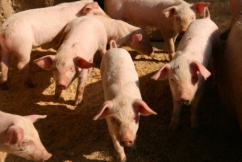
Bob Yuill, deputy chief executive of the Scottish Agricultural Organisation Society (SAOS), which supports co-operative farming in Scotland welcomed the initiative: “It is very significant that the plant is now effectively in the hands of pig producers. This strategic collaboration amongst the co-ops is hugely important and an example of the kind of cross-European partnership that we need to see more of.”
QPL said they have future plans on upgrading the site by adding a new slaughter line, chilling and lorry wash facilities which will increase the capacity of the operation.
Andrew Saunders, director of agriculture at Tulip, explained: “The purchase of the facility by QPL is fantastic news for the whole of the Scottish pig industry and their planned upgrade to increase the site’s capacity will mean that even more people across the UK and further afield will be able to enjoy quality Scottish pork.” –
QPL said the initiative was supported by the Scottish Government: “The Scottish government has been very supportive of this initiative and I am confident that by working closely with Quality Meat Scotland, Scottish Pig Producers, Scotlean and Tulip we can help secure the future of the Scottish pig industry.”
A high level of white meat and fish consumption could reduce the risk of developing liver cancer, according to a study.
Published in the Alimentary Pharmacology & Therapeutics journal, the research showed that “a high level of white meat or fish consumption can reduce the risk of hepatocellular carcinoma (HCC) significantly”
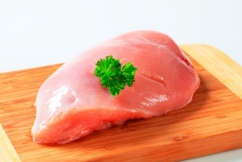
The study was conducted by the Department of Radiation Therapy, Zhejiang Cancer Hospital, Hangzhou, China, and used data from as far back as 1956.
HCC is the most common liver cancer, and the results of the research also concluded there was no link between the consumption of red or processed meat and HCC risk. The study was carried out since “considering the rising incidence of HCC, especially in Europe and North America, identifying new risk factors and protective factors is important for HCC prevention, which will provide new strategies to lower its incidence”.
The results showed that a higher intake of fish and poultry was not linked to HCC, but more than this, they “were found to be inversely associated with HCC risk”. It said: “Our findings suggest that dietary intervention may be a promising approach for prevention of HCC, which still need to be confirmed by further well-designed prospective studies and experimental research.”
It explained that while red and processed meat had been linked to some cancers by studies in the past, “we found no significant association between HCC and red meat or processed meat consumption”.